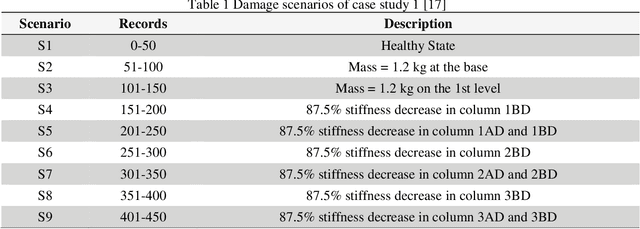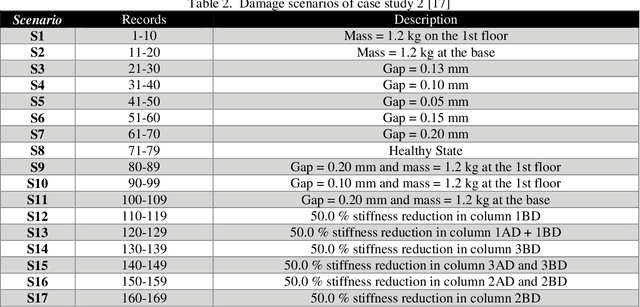A Data-Driven Approach for Linear and Nonlinear Damage Detection Using Variational Mode Decomposition and GARCH Model
Paper and Code
Nov 16, 2021



In this article, an original data-driven approach is proposed to detect both linear and nonlinear damage in structures using output-only responses. The method deploys variational mode decomposition (VMD) and a generalised autoregressive conditional heteroscedasticity (GARCH) model for signal processing and feature extraction. To this end, VMD decomposes the response signals into intrinsic mode functions (IMFs). Afterwards, the GARCH model is utilised to represent the statistics of IMFs. The model coefficients of IMFs construct the primary feature vector. Kernel-based principal component analysis (PCA) and linear discriminant analysis (LDA) are utilised to reduce the redundancy of the primary features by mapping them to the new feature space. The informative features are then fed separately into three supervised classifiers, namely support vector machine (SVM), k-nearest neighbour (kNN), and fine tree. The performance of the proposed method is evaluated on two experimentally scaled models in terms of linear and nonlinear damage assessment. Kurtosis and ARCH tests proved the compatibility of the GARCH model.
 Add to Chrome
Add to Chrome Add to Firefox
Add to Firefox Add to Edge
Add to Edge